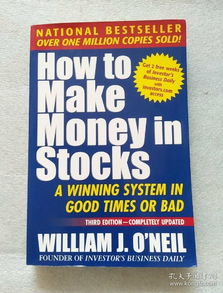Understanding the Stock Market During a Recession

When the economy is in a downturn, the stock market often follows suit. However, this doesn’t mean you can’t make money. In fact, there are several strategies you can employ to capitalize on the market’s fluctuations. Let’s dive into some of the most effective ways to make money during a recession in the stock market.
1. Diversify Your Portfolio

One of the most crucial steps in making money during a recession is diversifying your portfolio. This means investing in a variety of assets, such as stocks, bonds, and real estate, to reduce your exposure to any single market. Diversification can help protect your investments from the volatility that often comes with a recession.
For example, when the stock market is down, bonds may perform better as investors seek safer investments. Similarly, real estate can provide a stable income stream through rental income. By diversifying your portfolio, you can mitigate the risks associated with a recession and potentially increase your returns.
2. Focus on Dividend Stocks

Dividend stocks can be a valuable asset during a recession. These are stocks that pay out a portion of their earnings to shareholders on a regular basis. Dividends can provide a steady income stream, which can be particularly beneficial during times of economic uncertainty.
When selecting dividend stocks, look for companies with a strong history of paying dividends and a stable business model. These companies are often more resilient during a recession, as they have the financial stability to continue paying out dividends even when the market is down.
3. Invest in Blue-Chip Stocks
Blue-chip stocks are shares of well-established, financially stable companies with a long history of reliable performance. These companies often have strong market positions and are less likely to be affected by economic downturns.
Investing in blue-chip stocks can be a good strategy during a recession, as these companies tend to weather the storm better than smaller, more volatile stocks. Some popular blue-chip stocks include companies like Apple, Microsoft, and Johnson & Johnson.
4. Consider Value Stocks
Value stocks are shares of companies that are trading at a price below their intrinsic value. This can be due to a variety of factors, such as market sentiment or temporary issues affecting the company’s performance.
During a recession, value stocks can offer significant upside potential. By identifying companies that are undervalued, you can invest in them at a lower price and potentially benefit from a rebound in their stock price as the market recovers.
5. Use Stop-Loss Orders
A stop-loss order is an instruction to sell a stock when it reaches a certain price. This can help protect your investments from significant losses during a recession. By setting a stop-loss order, you can limit your exposure to the market’s volatility and potentially avoid making impulsive decisions in the heat of the moment.
When setting a stop-loss order, it’s important to choose a price that is reasonable and based on your investment strategy. This will help ensure that you’re not selling your stocks prematurely and missing out on potential recoveries.
6. Stay Informed
Staying informed about the market and economic conditions is crucial during a recession. By keeping up with news and analysis, you can make more informed decisions about your investments.
There are many resources available to help you stay informed, including financial news websites, investment blogs, and market research reports. Additionally, consider consulting with a financial advisor who can provide personalized advice based on your investment goals and risk tolerance.
7. Be Patient
Finally, it’s important to be patient during a recession. The stock market can be unpredictable, and it may take time for the market to recover. By staying patient and sticking to your investment strategy, you can increase your chances of success.
Remember that investing in the stock market always involves risks, and it’s important to only invest money that you can afford to lose. By following these strategies and staying informed, you can position yourself to make money during a recession in the stock market.



